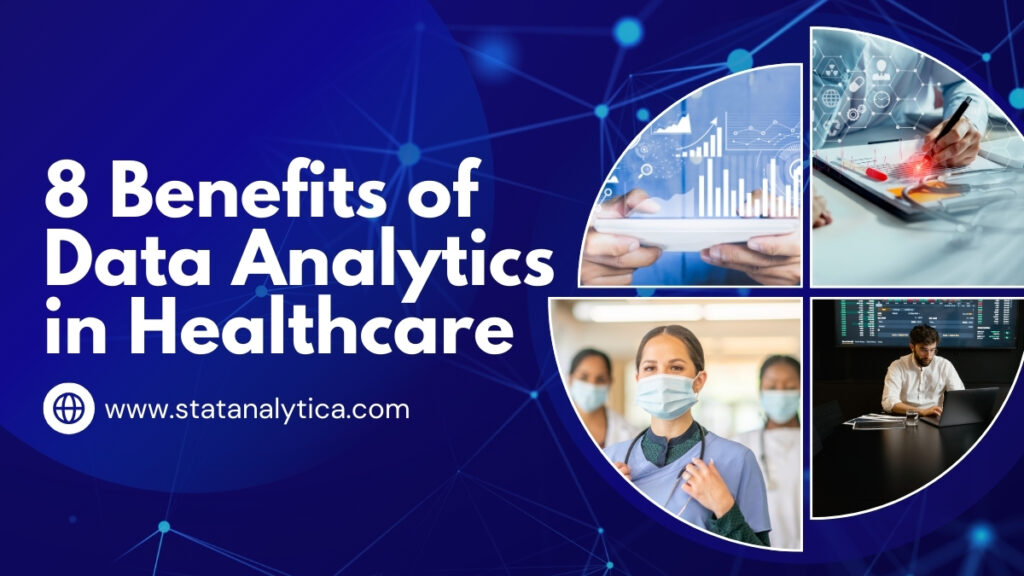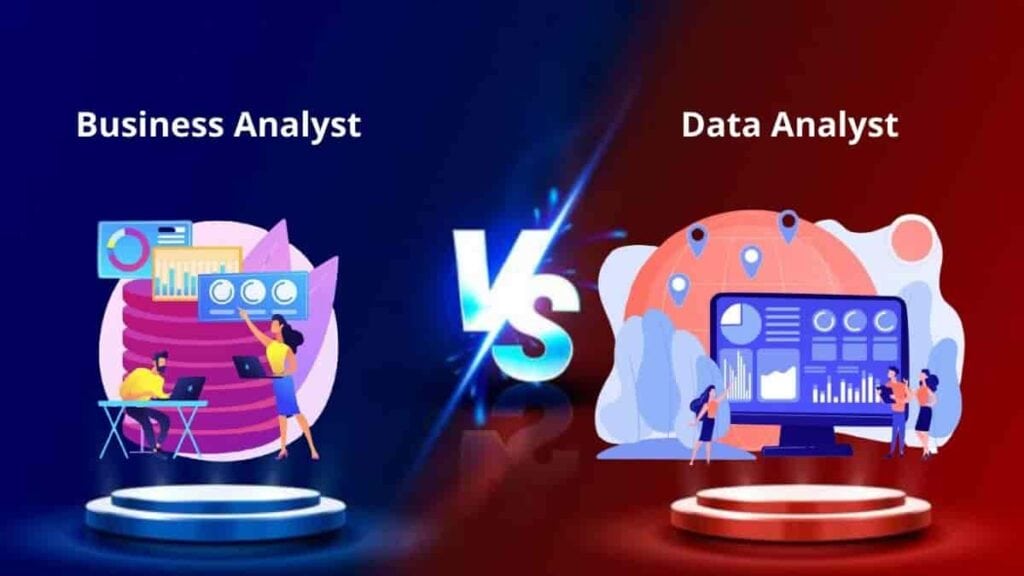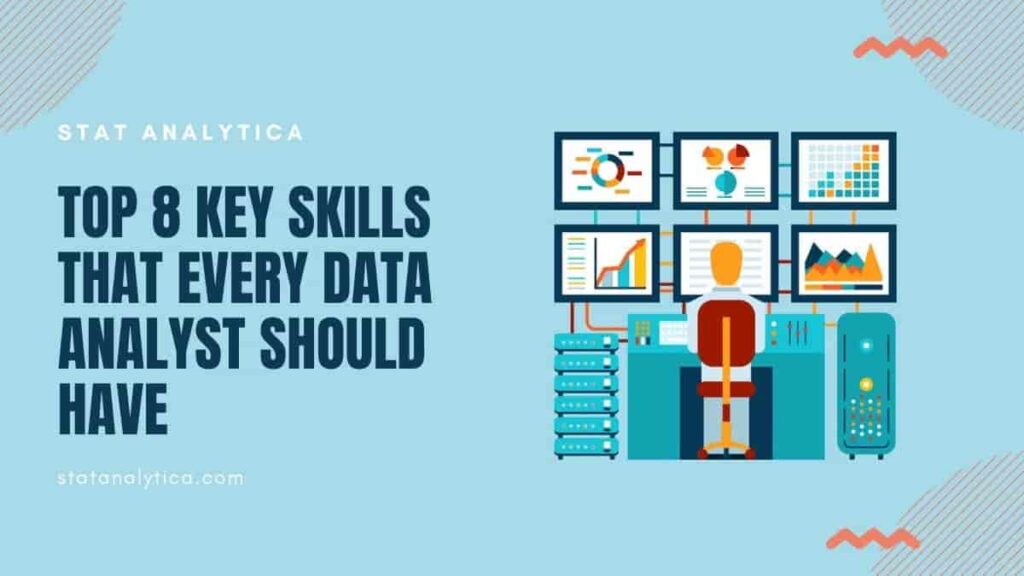Imagine walking into a hospital where doctors already know what your body needs, even before you describe your symptoms. Sounds futuristic? Thanks to the growing benefits of data analytics in healthcare, this future is quickly becoming our reality. From predicting diseases to streamlining hospital operations, data is turning healthcare from reactive to truly proactive.
We’re no longer just relying on stethoscopes and gut instincts. Today, medical professionals are using smart insights drawn from real patient data, helping them deliver faster and more personalized care than ever before. But what exactly is data analytics, and why is it creating such a buzz in the world of medicine? Let’s dive in.
What is Data Analytics in Healthcare?
Table of Contents
The benefits of data analytics in healthcare become clear once we understand what data analytics really means. In simple terms, data analytics involves examining large sets of data to uncover useful insights, patterns, and trends. By using data analytics, healthcare professionals can make more informed decisions, improve patient outcomes, and run more efficient operations. It helps them move from reactive care to proactive and even predictive care. In essence, data analytics enables the right care at the right time — and that’s incredibly powerful.
Understanding the Role of Data Analytics in Modern Healthcare
The benefits of data analytics in healthcare start with one simple idea: making sense of information. Healthcare generates tons of data every day — patient charts, lab tests, appointment histories, imaging scans, and even fitness tracker results. Without analytics, most of this data would go to waste.
Data analytics involves collecting, cleaning, and interpreting this information to spot patterns, find connections, and make predictions. In healthcare, this means better diagnoses, faster treatments, and smarter planning. Instead of just reacting to problems, healthcare teams can now stay a step ahead.
Why Data Analytics is Becoming a Necessity, Not a Luxury
It’s not just a “nice-to-have” anymore — the benefits of data analytics in healthcare are so critical that many hospitals and clinics are making it a central part of their strategies. With the pressure to reduce costs, improve care, and manage huge patient volumes, traditional methods are falling short. Analytics offers a fresh, clear perspective. It tells medical professionals what’s working, what’s not, and where there’s room to improve. Whether it’s identifying which patients need urgent care or spotting inefficiencies in how beds are used, analytics helps decision-makers take meaningful action.
8 Benefits of Data Analytics in Healthcare
1. Better Treatment Starts with Better Insight
The main benefit of data analytics in healthcare is that it supports more personalized treatment. In the past, doctors often had to rely on general guidelines. Now, with patient-specific data at their fingertips, they can offer care that matches individual needs.
Data analytics helps tailor treatments by reviewing a patient’s medical history, test results, genetic background, and lifestyle choices. Even after treatment starts, data analytics tools suggest changes if something’s not working, helping doctors fine-tune the approach in real time.
2. Spotting Health Risks Before They Turn Into Problems
One of the most powerful benefits of data analytics in healthcare is its ability to catch warning signs before a condition becomes serious. Imagine being able to tell someone they’re at risk for heart disease or diabetes, not after symptoms appear, but months or even years in advance. That’s exactly what predictive analytics makes possible.
By comparing a person’s medical history, lifestyle habits, and test results with large sets of health data, doctors can identify patterns that point to potential health issues down the line. This eases the burden on hospitals by reducing emergency visits and advanced-stage treatments. In short, data analytics is helping us stay one step ahead of disease—and that’s a big win for everyone.
3. Keeping Hospital Systems Organized and Efficient
One of the most practical benefits of data analytics in healthcare is how it helps hospitals stay organized behind the scenes. When we think about hospitals, we often picture doctors, nurses, and patients — but there’s a lot more going on in the background. From bed availability and staff schedules to managing medical supplies, healthcare facilities juggle countless moving parts every single day. This is where data analytics makes a big difference.
4. Cutting Costs the Smart Way Without Sacrificing Quality
By digging into medical records, billing patterns, and treatment histories, healthcare providers can spot where money is being lost, like repeated tests, unnecessary procedures, or underused equipment. Instead of throwing more money at problems, data allows hospitals to fix them with smarter decisions. It’s not about doing less — it’s about doing things better. Whether it’s choosing the most effective treatment upfront or optimizing how staff and supplies are used, data analytics helps healthcare providers stretch their budgets without cutting corners on care.
5. Supporting Breakthroughs in Medical Research
By using analytics, they can study patterns, test theories, and find new treatments faster. For example, during the COVID-19 pandemic, data analytics was critical in understanding the virus, developing vaccines, and tracking effectiveness.
This kind of research used to take years. With data-driven tools, scientists can make discoveries in a fraction of the time, leading to better treatments and improved patient care.
6. Giving Patients More Control Over Their Health
In today’s connected world, people want to be active participants in their health. The benefits of data analytics in healthcare also extend to patients, who can now track their information using apps and devices.
Fitness trackers, smartwatches, and online health portals provide real-time feedback on things like heart rate, sleep quality, or calorie intake. These tools also sync with healthcare systems, giving doctors more complete pictures of their patients’ lives outside the clinic.
When patients understand their health data, they make better choices, leading to fewer problems down the line. This is a shift toward prevention rather than just treatment.
7. Turning Healthcare Decisions Into Data-Driven Actions
Gone are the days when medical decisions were based purely on intuition or tradition. One of the smartest benefits of data analytics in healthcare is that it backs every choice with evidence.
Analytics tools help doctors compare different treatment paths, monitor patient progress, and quickly adapt if needed. Hospital administrators use the same tools to check performance, spot areas for improvement, and allocate resources wisely.
Whether it’s clinical or administrative, having reliable data means more confident decisions and better results.
8. Fighting Fraud and Protecting Privacy
Not all healthcare challenges are medical. Fraud and data misuse cost billions each year. That’s where another key benefit of data analytics in healthcare comes in—fraud detection and security monitoring.
Analytics software can scan thousands of transactions to find unusual patterns, such as overbilling or false claims. It can also help healthcare providers meet strict legal requirements for data privacy, especially under laws like HIPAA.
Final Thoughts
When we consider the many benefits of data analytics in healthcare, one thing becomes clear: data isn’t just about numbers—it’s about people. It’s about catching diseases early, treating them better, and running healthcare systems that are fair and efficient.
As more tools become available and technology improves, data analytics will only become more important. Healthcare will become smarter, more personalized, and more proactive.
In the end, the future of medicine will not be found in labs and clinics but will also be written in data.
FAQs
Can common individuals benefit from healthcare data analytics, too?
Absolutely. Wearable devices, fitness apps, and online health portals let individuals track their health and even share data with doctors. This empowers people to take control of their well-being and catch potential issues before they turn into serious problems.
Is data analytics only useful for hospitals?
Not at all. While hospitals benefit greatly, data analytics is useful across the entire healthcare system, including clinics, insurance companies, pharmaceutical research, and even public health departments. It helps with cost control, resource planning, fraud detection, and much more.
Are patient privacy and data security at risk with analytics?
Protecting patient privacy is a top priority. Most healthcare organizations use strong data encryption and secure systems and follow legal regulations like HIPAA to keep patient information safe. Analytics tools are designed to be both powerful and respectful of patient confidentiality.


